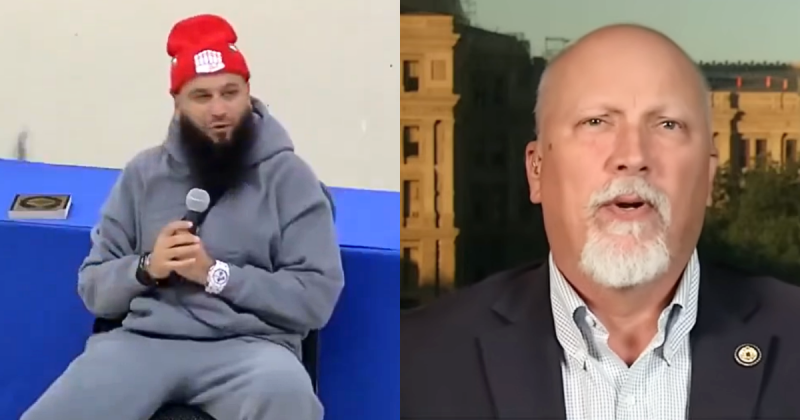A sermon by a Muslim preacher in Dearborn, Michigan, has gone viral after he described a divine mission to “civilize” Western nations, sparking debate over assimilation, radical ideology and foreign influence in U.S. communities.
The clip, released by MEMRI TV and widely shared on X, shows the preacher addressing teenage boys while criticizing Western habits—including the use of toilet paper—as “uncivilized.”
The video has garnered over 1.4 million views, prompting lawmakers and commentators to weigh in on concerns about extremist influence.
In the viral clip, the preacher mocked technological advances in Western societies, noting that humans explore space while still relying on paper for basic hygiene.
“Yet they still haven’t figured out that when you go to the bathroom, they’re still wiping themselves with paper,” he said. They’re uncivilized.”
He went on to claim that Muslims were sent by Allah to civilize Western nations and lamented that media coverage portrays them as barbaric.
The preacher also argued that Christians are envious of Muslims for adhering to strict religious beliefs, citing churches displaying LGBT symbols as evidence of societal decline.
Speaking in a city known for one of the largest Muslim populations in the United States, his remarks have fueled discussions about integration, religious influence, and ideological extremism, according to BizPac Review.
The viral sermon comes amid broader concerns over Islamist movements in the U.S.
Lawmakers in Texas have voiced alarm, with Rep. Chip Roy (R) describing the Dallas area as a strategic focus for the Muslim Brotherhood’s efforts to expand influence in the Western Hemisphere.
“They’re planting the seeds here, and we’ve gotta rip them up and get them out of Texas,” Roy said.
These concerns intersect with a controversial community development project east of Dallas.
The East Plano Islamic Center is pursuing a mosque-centered complex, initially blocked by Gov. Greg Abbott but reportedly revived under the name “The Meadow.”
Critics, including Rep. Keith Self (R), condemned the project on social media, stating, “I don’t care what it’s called; this doesn’t belong in Texas or anywhere in America.”
Observers worry that ostensibly routine religious initiatives could mask radical agendas.
Reactions to the preacher’s sermon on social media ranged from shock to ridicule.
Many questioned the practicality of his claims and mocked the notion of moral superiority.
One X user wrote, “That’s called progress. Whereas Muslims use their bare hand to wipe their a**.” Another quipped, “Well… we don’t all have a**-licking goats at our disposal.”
While social media users mocked the preacher’s remarks, advocacy groups have taken a more formal stance.
Civil rights organizations, including the Council on American-Islamic Relations (CAIR) and the Arab American Civil Rights League (ACRL), have occasionally criticized coverage of extremist incidents, labeling some reporting “Islamophobic.”
These dynamics underscore the tension between protecting civil liberties and ensuring public safety amid concerns about radical ideology.
Analysts and policymakers stress that dismissing ideological extremism could normalize anti-Western rhetoric.
Advocates for stricter immigration oversight argue that the Dearborn sermon demonstrates the importance of assimilation, vigilance and safeguarding American values.
Lawmakers in multiple states continue monitoring projects and religious networks for signs of extremist influence, emphasizing the need for public awareness and legislative attention.
By combining a high-profile viral video, reactions from social media and statements from lawmakers, the situation highlights ongoing debates over assimilation, foreign influence and the role of extremist ideologies in communities across the United States.
WATCH:

